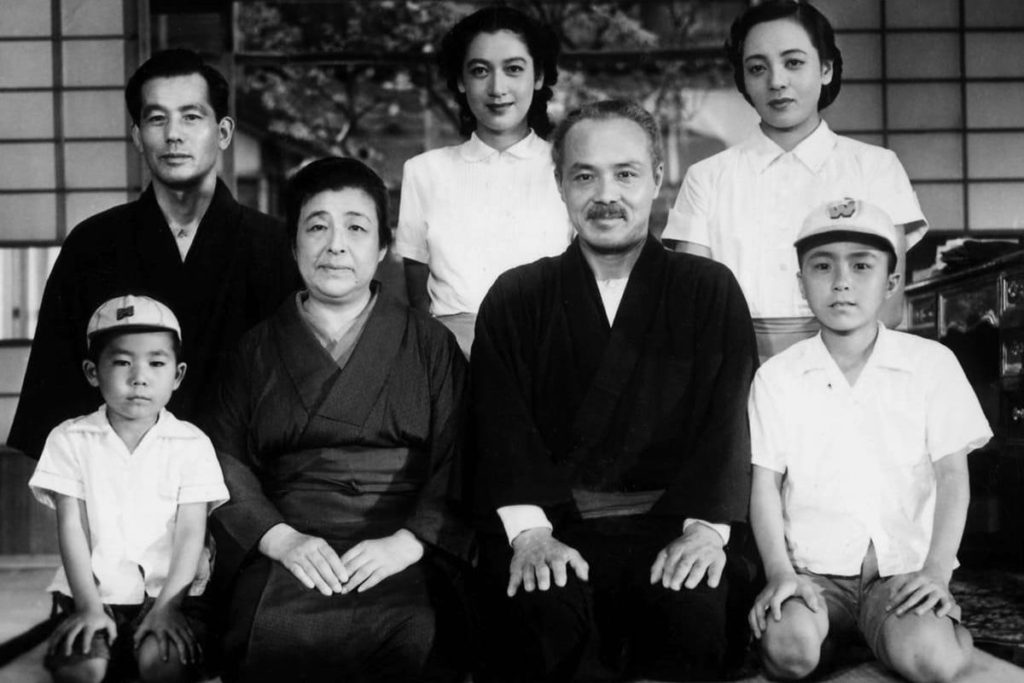
The centerpiece of Ozu’s trilogy of films about the drift of family and tradition in post-war Japan, Early Summer is every bit as gently provocative as its two more celebrated bookends. As far as cinema is concerned, Ozu was ahead of his time, and Early Summer is a great example of the way his films show us the inertia of change in the lives of extended families slowly disintegrating in the wake of modernization. In this installment, a mother and father are trying to find a proper husband for their aging daughter so that they can retire to a rural town. Matchmaking conversations and strategies at work and home strain the already creaking structure of this extended family, and through the cracks we begin to see the startling differences between each of the three generations involved.
Ozu is fascinated with all the things that we lose as time progresses through generations, war, and the disorienting march of modernization. In Early Summer, these reflections take the form of balloons slipping away, caged birds, or a broken loaf of bread. His slow pacing gives us time to explore this curio shop of gestures, images, and unspoken reflections on the quiet bonds of family. Several times, Early Summer also slips out of Ozu’s typical low angle, and wide shots of the sea or fields of barley punctuate the film with the grace of simple geometry. This list would be incomplete without Ozu’s formative reflections on what happened in the middle of the 20th century, the fallout of which has settled across the way we see ourselves as part of families, societies, and the patronizing pace of progress.
– M. Leary
- Directed by: Yasujirô Ozu
- Produced by: Takeshi Yamamoto
- Written by: Yasujirô Ozu Kôgo Noda
- Music by: Senji Itô
- Cinematography by: Yûharu Atsuta
- Editing by: Yoshiyasu Hamamura
- Release Date: 1951
- Running Time: 125
- Language: Japanese, English
Arts & Faith Lists:
2010 Top 100 — #9
2011 Top 100 — #94